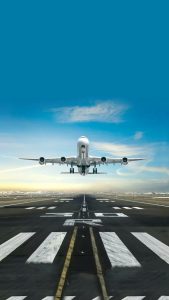From Leonardo da Vinci’s 1490s flying machine ideas to the Wright Brothers’ first comprehensive plane, and finally commodified in 1914 when Tony Jannus flew from Tampa to St. Petersburg with the first plane passenger, the aviation sector has only grown in both antiquity and systems.
Aerospace now encompasses all aspects of air travel, including the airline industry, R&D, and aircraft manufacturing.
With this in mind have you ever wondered why it is more expensive to fly within Africa than outside of it?
Taxes play an important role in keeping the cost of flights to and within Africa out of reach for many tourists.
There is no standard African policy regarding air navigation service charges, according to the African Airlines Association (AFRAA). As a result, service providers apply different rates from one country to the next, except for ASECNA, whose formulas are shared by 17 member countries in western and central Africa and the Indian Ocean.
The aviation industry has its fiscal regime.
According to ICAO regulations, fuel, which accounts for at least 24.7% of African airlines’ operational costs (IATA WATS 2019), should not be taxed.
However, passengers are subject to a slew of additional taxes and fees.
Passengers on no regional flights pay an average of 3.4 different taxes and fees at the airport, totaling USD 64.
Ten airports charge passengers more than USD 100.
Western and Central Africa have the highest passenger charges, with an average of USD 94.59 and USD 93.74 for international travel, respectively.
Northern Africa has the lowest average taxes and fees passengers pay, at USD 26.27.
In Central and Western Africa, 10 of the 23 airports, or nearly half, charge more than USD 100.
As a result, the two regions account for only 20% of global traffic to and from Africa.
Most Northern African airports, which account for 35% of total traffic, charge less than USD 50.
Whereas the average amount of taxes and fees paid by passengers in Africa is USD 64, passengers in Europe and the Middle East are charged USD 30.23 and USD 29.65, respectively, even though traffic in these regions is much higher.
Passengers in Africa must also pay taxes and fees at the time of transfer and upon arrival.
Regarding taxes and fees on arrival and transfer, European airports charge less than African airports.
In Africa, the average amount of transfer taxes and fees is USD 36.02, compared to USD 17.55 in Europe.
Arrival taxes and fees in Europe are USD 8.81, while in Africa, they are USD 12.32.
Aside from passenger taxes levied directly on the ticket, airlines must pay various other fees associated with their airport operations, such as landing, noise, parking, Common User Terminal Equipment CUTE, Jet way Charge, passenger bus, and so on.
Otherwise
Afreximbank has pledged over $ 2.5 billion in funding for African airlines over the last decade and maintains a fund of more than $ 200 million.
To deal with the epidemic’s effects, many airlines have reduced their staffing levels, with the cost of testing COVID-19 as a new passenger tariff.
According to stakeholders in this sector, the resumption and return should provide African air travel opportunities to address the high cost of operating operations.
Mark Tierney, CEO of Crabtree Capital, a Dublin-based air travel consulting firm, believes that if the continent is serious about making air travel affordable for many people to boost the economy and development, there is a way.
There are only two options: subsidize or cut costs.”
Subsidies do not exist, perhaps cutting costs is the only remaining option.
Mr. Tierney believes that for this to happen, the fragmentation of Africa’s small aviation market must be stopped, and economic growth must be accelerated.
He stated that the aviation industry requires specialized equipment for sustainability guidelines and best practices that can be implemented.
Mogadishu has the highest airline charges, with more than USD 2000 for an international flight, while a busy airport like Algiers charges USD 158 in the same conditions.
The average fee is USD 624, but 53% of airports charge less than 600.
Three African airports charge less than USD 50: Maseru, Khartoum, and Manzini.
While airlines strive to provide low-cost tickets to passengers, taxes and fees can cause the total cost of a ticket to be more than double the base fare.
Given Africa’s low purchasing power, it is critical to assess the high taxes and fees issue to stimulate demand and make air travel affordable to African citizens.
According to AFRAA, the high level of taxes, fees, and charges is a critical issue that is counter-productive to the development of African air transport.
Because air travel is regarded as a luxury service, governments frequently overtax the air transport supply chain, resulting in excessive service charges for airlines.
According to a Predictive Mobility study, the price/demand elasticity for air transport within Africa ranges from -2.34% to -3.15%.
That means that a 10% decrease in ticket prices could increase demand at a continental level from 22.3 to 30.1 million passengers per year.
On March 3, 2021, major African aviation stakeholders convened online to discuss the factors contributing to the high air travel cost and how to address these issues.
At a meeting held by the African Aviation Industry Group (AAIG) on the theme “Achieving Cheap Air Transport in Africa,” industry experts stated that the high cost of air travel was caused by a combination of factors such as the cost of goods sold, the prices of middle procedures, government tariff barriers, regulatory fees, purchasing time (buying tickets is usually cheaper), fuel costs, market demand and demand, and costs related to indigenous manufacturers’ equipment.
They also discussed safety and security concerns, poor interaction in Africa, market access, and inadequate infrastructure as challenges for the sector.
Tefera Mekonnen Tefera, Secretary General of the African Aviation Commission, stated that the aviation industry was overburdened with tariffs and higher fees and costs, making air travel more expensive in many African places.
“In addition to air transport fees and government levies, airlines also pay more for airport equipment and services, aviation handling services, management and regulatory services, and transport authorities,” Mr. Tefera added (CAA).
“Airlines also face high jet fuel costs; however, the fees and taxes levied thus far have significantly impacted African airline ticket prices,” he emphasized.
A further option for lowering airfares is for the government to intervene through subsidies, protection, participation in the value-added system, notably the preferential purchase of essential equipment and ownership of critical infrastructure, and the provision of crucial economic safeguards.
According to an official statement issued following a meeting with the United Nations, the aviation industry must take appropriate measures to improve airline efficiency.
This has the potential to lower costs, allowing the aviation industry to be accessible and affordable to more African travelers.
European airlines must pay fees that do not exist in Africa, such as de-icing, slot coordination, and aircraft water.
Other charges, such as lightning and noise, have higher rates,” it continues.
According to a Predictive Mobility study, the elasticity of price/demand for air transport within Africa ranges from -2.34 to -3.15 percentage points.
According to the report, a 10% decrease in ticket prices could increase demand at the continental level from 22.3 to 30.1 million passengers per year.
The need to look into the high cost of air travels between African countries cannot be over emphasized because the free trade agreement being projected by the African Union will remain a day dream if the people cannot meet quickly and easily whenever they want to. The onus is on the leaders of the continent in all walks of life to put hands on deck and improve on the situation.



